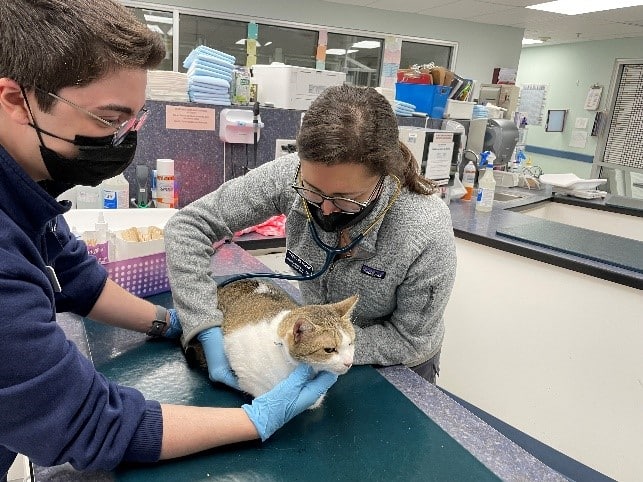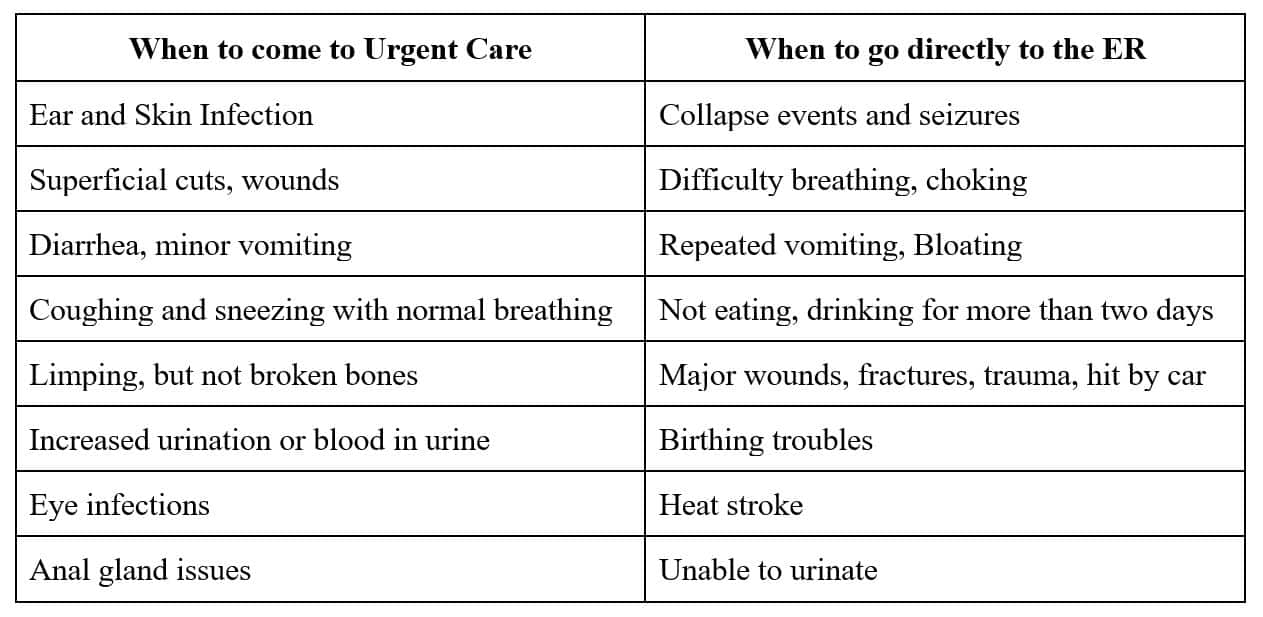-
Adopt
-
Veterinary Care
Services
Client Information
- What to Expect – Angell Boston
- Client Rights and Responsibilities
- Payments / Financial Assistance
- Pharmacy
- Client Policies
- Our Doctors
- Grief Support / Counseling
- Directions and Parking
- Helpful “How-to” Pet Care
Online Payments
Emergency: Boston
Emergency: Waltham
Poison Control Hotline
-
Programs & Resources
- Careers
-
Donate Now
 By Natasha Pakravan, DVM
By Natasha Pakravan, DVM![]()
angell.org/urgentcare
urgentcare@angell.org
781-902-8300
April 2024
X
X
X
X

Veterinary Urgent Care Medicine is a newer model of care focused on treating urgent but non-life-threatening medical conditions for our dogs and cats.
In the past, if a dog or cat experienced a health concern, their owner would either schedule an appointment with their primary care veterinarian or be directed to a veterinary emergency room for a more severe and time-sensitive concern.
Once at the emergency room, if the patient was triaged as stable for a non-life-threatening illness or injury, they might wait longer because sicker patients with life-threatening illnesses always take priority. These longer wait times have been exacerbated by the increase in pet ownership over the past several years.
Recently, a new solution, the field of veterinary urgent care, has emerged to help bridge the gap between primary veterinary care and the emergency room. The model of these urgent care centers borrows from human urgent care facilities. The goal is to provide timely and convenient care to veterinary patients with medical concerns that should still be treated expediently for patient health and comfort but are non-emergent and non-life-threatening and, therefore, do not need to be seen through an emergency room.
Veterinary urgent care centers can operate as standalone facilities or be part of a referral specialty or emergency hospital. Some are appointment-based, while others are walk-in. At Angell West, Urgent Care appointments can be made up to 48 hours ahead of time, and there are always same-day appointments available. The urgent care service is housed in the same building as our emergency department, ensuring that if a patient needs more involved emergency medical care, the transition to the emergency team will be easily facilitated.
When determining if your pet’s medical needs would be appropriate for urgent care, we recommend considering where a human with a similar condition would be directed. For example, an ear infection is a non-life-threatening condition. Still, it is uncomfortable and painful for the dog or cat and is a very appropriate case for urgent care instead of an emergency room. Of course, our pets can’t tell us what is wrong with them, so occasionally, a pet seen through urgent care will be redirected to the emergency department based on examination and diagnostics.
Below is a helpful guideline for determining illnesses appropriate for urgent care versus the emergency room.
